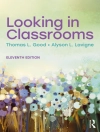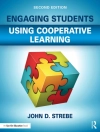A unique look at the problems in measuring crime both historically and internationally
Filled with real world examples derived from media reports on crime trends and other sources, this fully updated Second Edition analyzes the specific errors that can occur in the three most common methods used to report crime—official crime data, self report, and victimization studies. For each method, the authors examine strengths and weaknesses, the fundamental issues surrounding ac...
Tabella dei contenuti
Exhibits
Acknowledgments
1. Introduction: The Pervasiveness (and Limitations) of Measurement
2. The History of Measuring Crime
3. Official Crime Data
4. Self-R...
Circa l’autore
Timothy C. Hart is an Associate Professor of Criminology and Criminal Justice at the University of Tampa. Tim earned his Ph D in criminology and criminal justice from...












